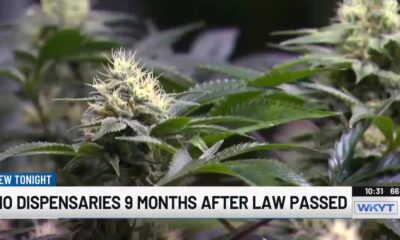This article has been updated to correct a misattribution.
As the public comment period on cannabis rescheduling closes, many of the conversations lately have centered on what exactly it means for valuations and recreational use.
However, medical professionals and patient advocates this week spoke about the impacts the process — one that marks a significant departure from previous attempts to change marijuana’s federal status — would have on healthcare and patient access.
Steph Sherer, founder of Americans for Safe Access, stressed the unique nature of the process this time around.
“This rescheduling process is very different from the other five processes we’ve seen, which were all initiated by petitions,” she explained in a press briefing hosted by the organization.
Unlike past efforts, this one was initiated directly by the Biden administration through a White House statement in October 2022.
Sherer elaborated, “For patients, patient advocates, this was a pretty amazing day when we found out that the top health agencies in the country agree and validate our experience that cannabis has currently accepted medical use and treatment in the United States.”
That top-down approach marks a big shift in federal policy. Previous rescheduling attempts relied on outside organizations or individuals petitioning the government, often facing lengthy delays and rejections. The current process, initiated by the executive branch, carries more weight and urgency, she said.
“Rescheduling cannabis means it can now be researched, which is a big deal,” said Dr. Leigh Vinocur, a physician advisor to the organization. However, Vinocur noted limitations: “It’s not going to require a prescription by doctors. They’ll still have to get it outside the federal laws.”
Brian Essenter, a cannabis pharmacist and owner of MM Consult CT, echoed that sentiment.
Rescheduling “allows your pharmaceutical companies and any of the other big companies, especially here in the United States, to do the kind of intensive research that we really want,” he said.
Essenter clarified, however, that rescheduling wouldn’t immediately change medical practices.
“You’re not going to see anything flowing into pharmacies; you’re not going to need a prescription for anything anytime soon,” he said. “It’s not going to affect the state medical cannabis programs.”
At the same time, pegging down its federal status could finally give some reprieve to military veterans towing that line of legality, according to Shanetha Marable-Lewis, a U.S. Army veteran and executive director of Veterans Initiative 22.
“Rescheduling could be the first step in closing this gap by allowing cannabis to go from recommendation to prescription for those who want a prescription,” Marable-Lewis said on the call.
Therefore, there’s a better shot the costs for vets could be covered or reimbursed by the Veteran Affairs system or private insurance, she said.
Sherer noted that such a change in approach could be far-reaching.
“This has always hung over us, right?” she said. “That we had to sort of get past this conversation (access for veterans) before we could talk about national access.”
However, she cautioned that the process remains subject to review and potential challenges.
“Even though it feels like we’re coming to the sort of end of a lot of the steps, really a lot will be decided in these next stages,” she said, referring to the DEA’s review process and likely administrative hearings.
The Drug Enforcement Administration is now reviewing public comments on the rescheduling proposal, with the comment period having already closed Monday at midnight. The agency will then decide whether to proceed with rescheduling or potentially hold an administrative hearing for further review.
As of 2020, over 8.3 million people reported using doctor-recommended marijuana, a number that could rise with rescheduling.
Another recent federally funded study published in the Annals of Internal Medicine found that medical marijuana patient registrations rose dramatically from about 678,000 in 2016 to over 4.1 million by the end of 2022. The study, which examined data from 39 state markets, attributed this partly to growing “cultural acceptance of cannabis” and interest in its medical uses.
Some insurers have argued in court that federal law prevents them from paying for marijuana. Even if reclassified as Schedule III, marijuana would still be illegal under federal law, complicating not just insurance coverage, but even normal business operations across state lines.

 California Cannabis Updates1 year ago
California Cannabis Updates1 year ago
 Breaking News1 year ago
Breaking News1 year ago
 best list1 year ago
best list1 year ago
 Business12 months ago
Business12 months ago
 cbd1 year ago
cbd1 year ago
 Bay Smokes1 year ago
Bay Smokes1 year ago
 cannabis brands12 months ago
cannabis brands12 months ago
 autoflower seeds12 months ago
autoflower seeds12 months ago










































